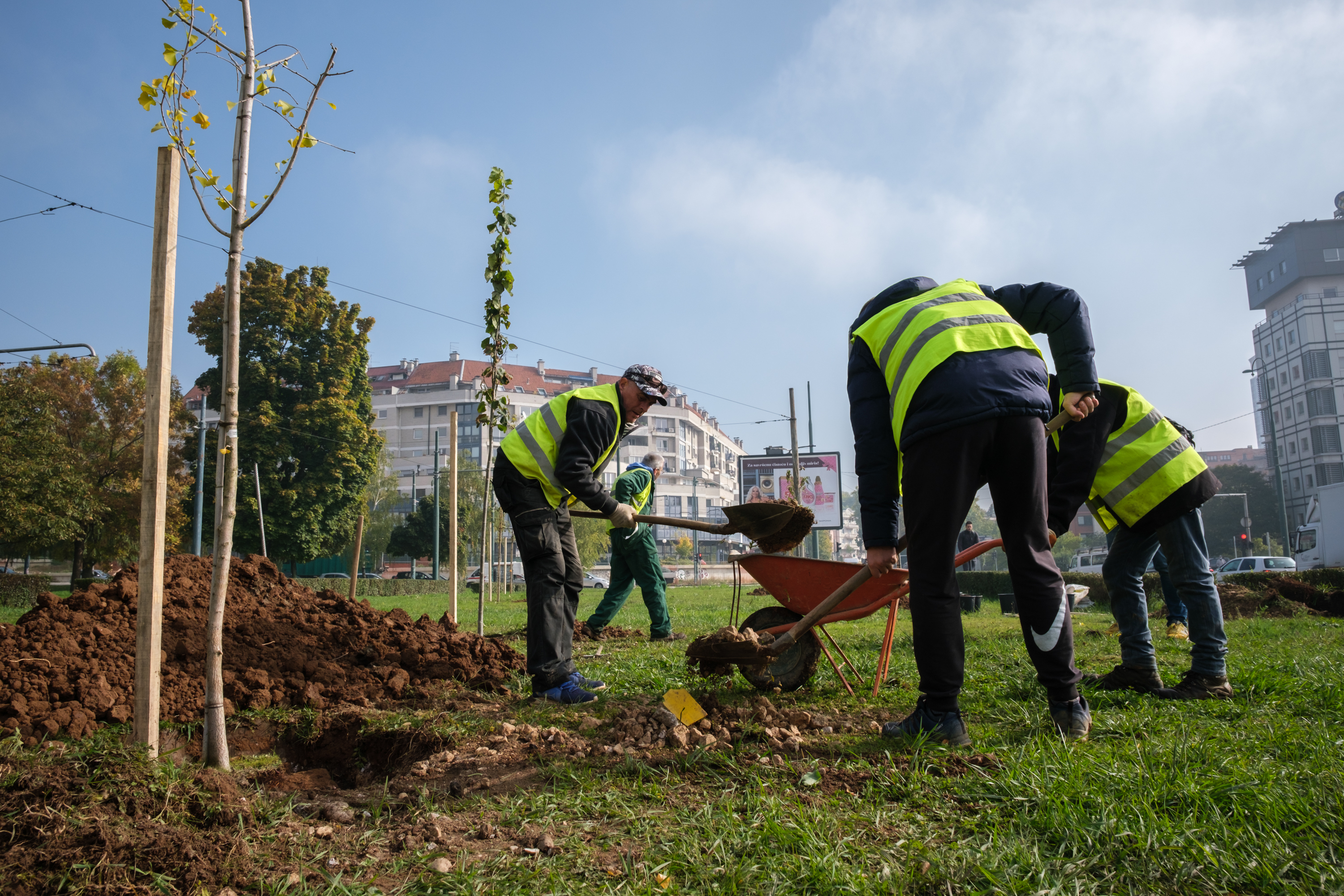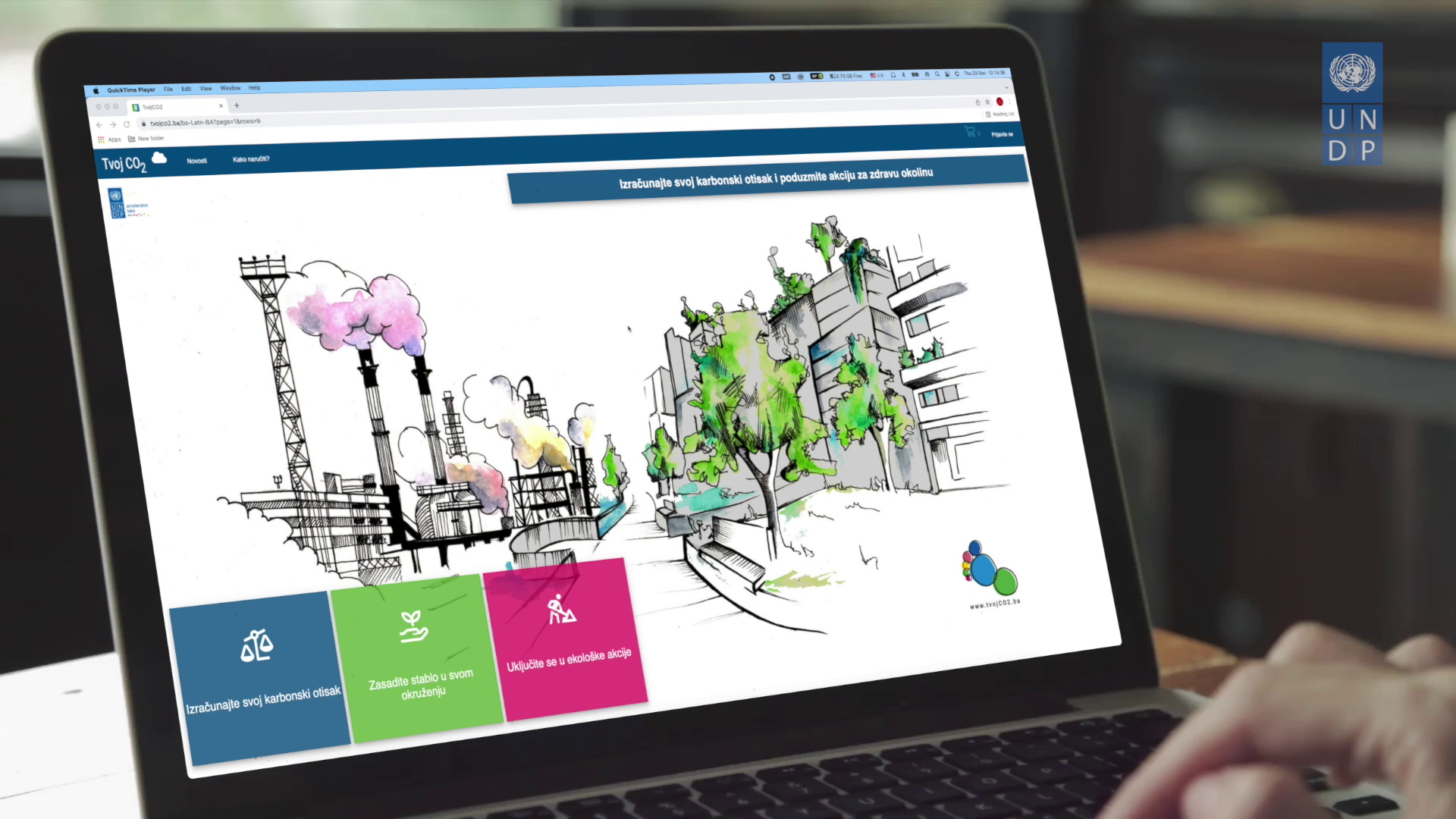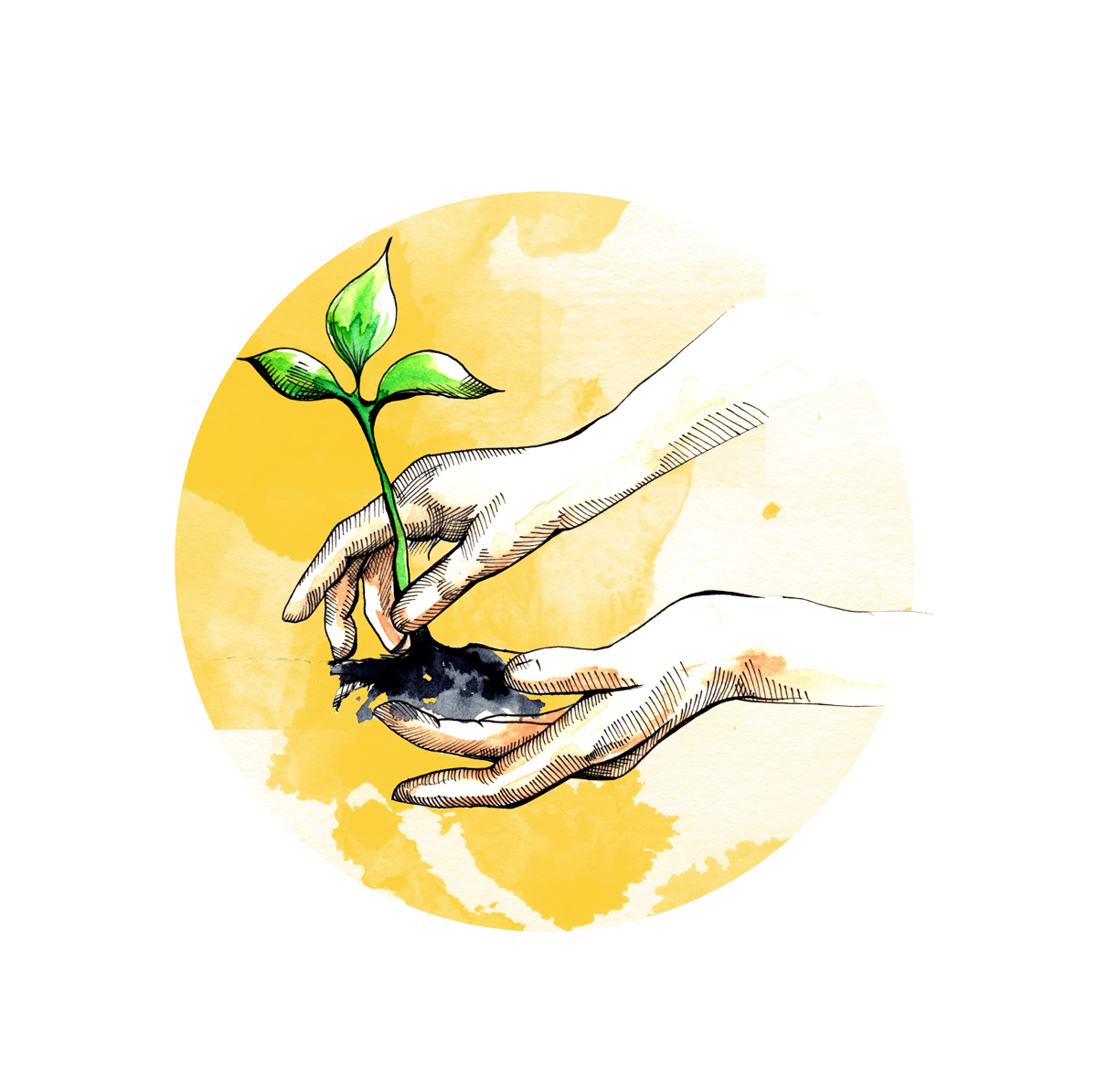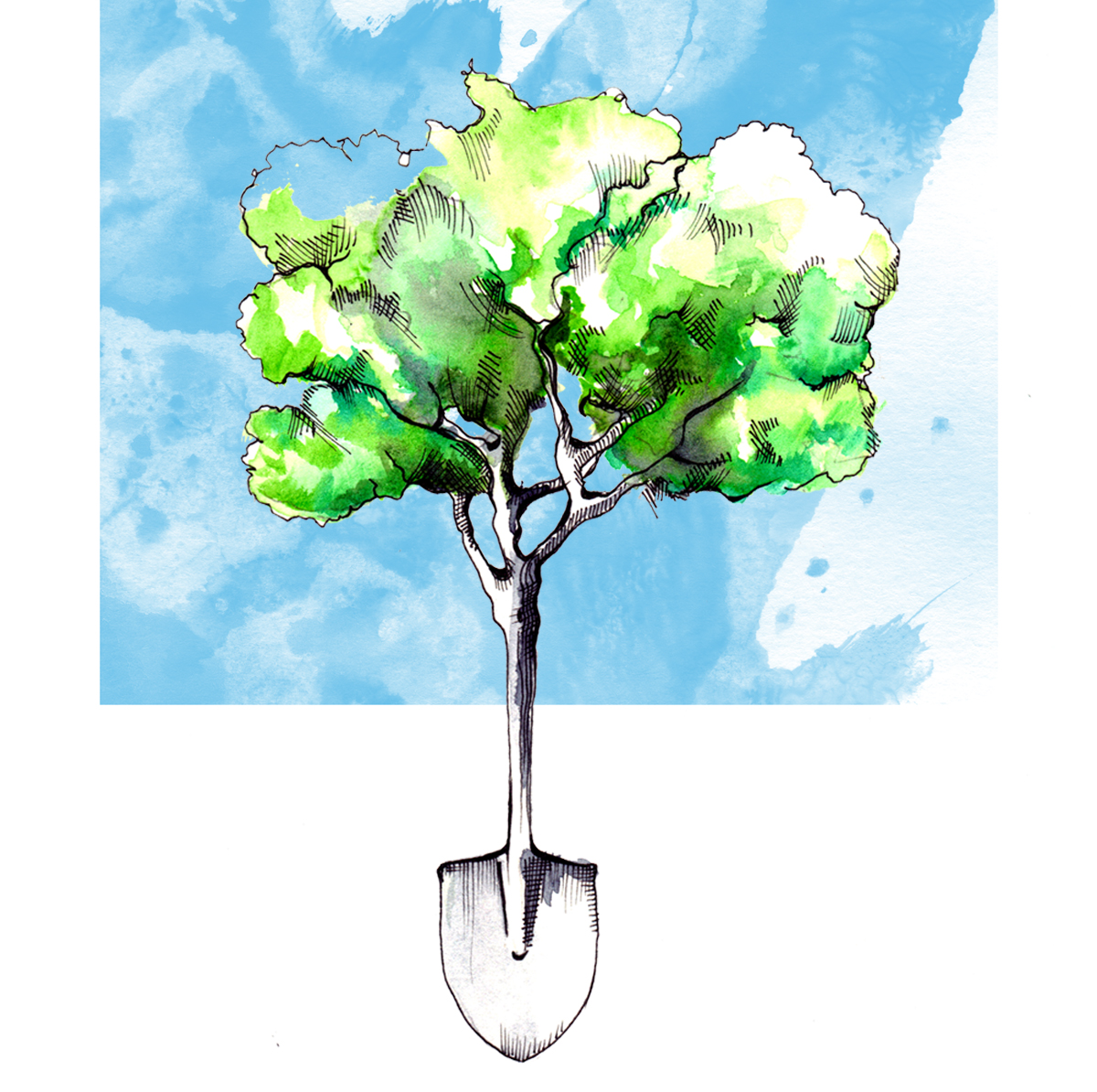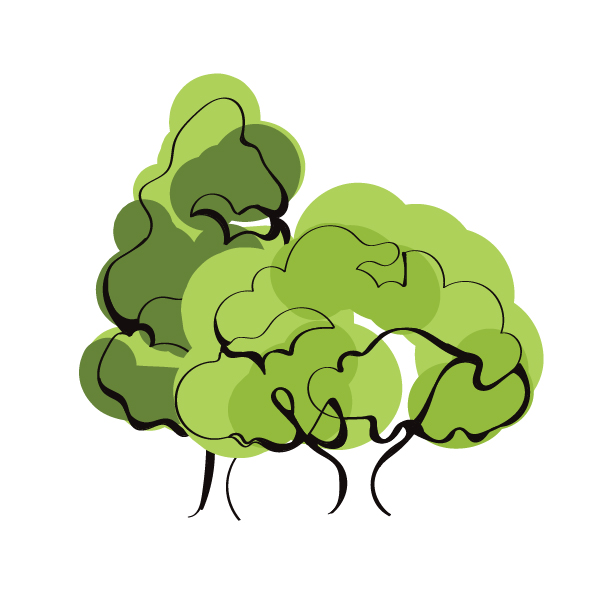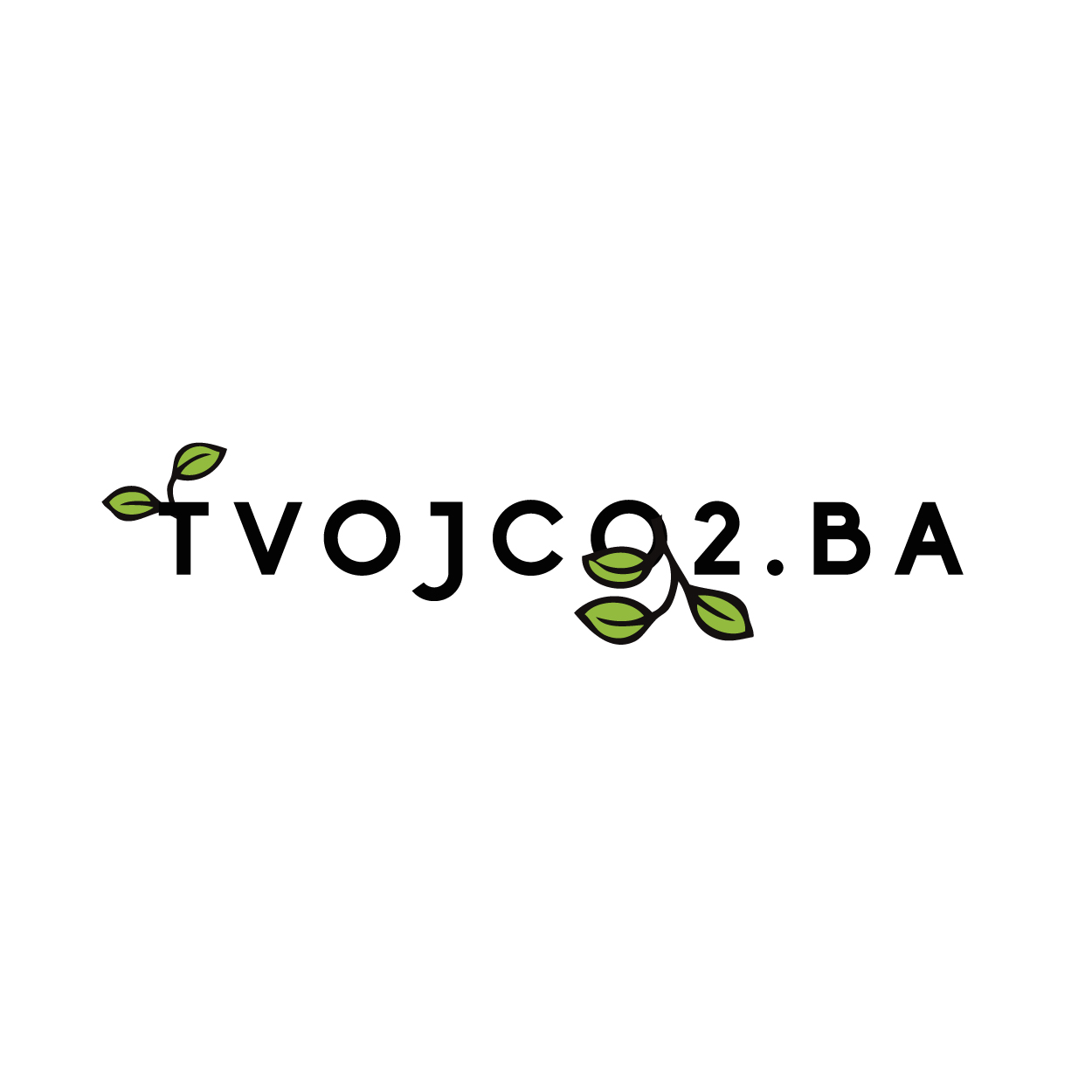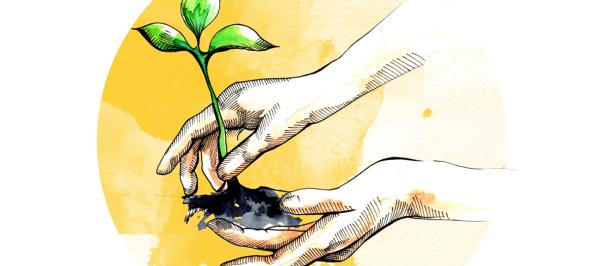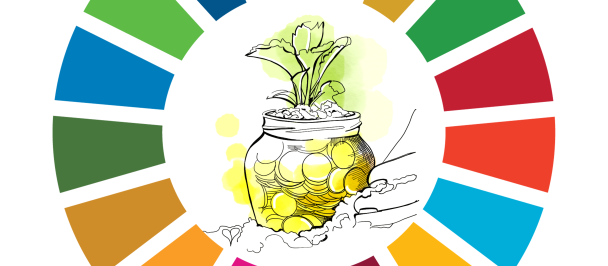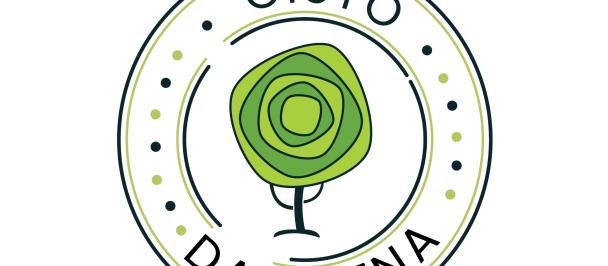Author: Amina Omicevic,
Head of Solutions Mapping, UNDP Accelerator Lab Bosnia and Herzegovina
1 Background
Our world is changing fast – often faster than societies can adapt. Contemporary health and economic pressures are complex to handle and difficult to mitigate. Nonetheless, there is a change that has been ongoing for much longer, costs much more, attracts less attention, and comes from a simple burning of fuels that contain carbon – a change in global climate, that is becoming warmer, as well as more extreme and unpredictable.
Science has clearly shown that climate has changed in Bosnia and Herzegovina too. Over the last few decades, the increase in air temperature on an annual level went up to 1.2 °C, and during the growing season (April–September) to as much as 1.4 °C. In the last ten years alone, six years have been very dry to extremely dry, and extreme floods have marked five years. Over the same period, forest fires coinciding with record droughts and heatwaves caused direct damages close to 60 million USD. The afforestation efforts are not accelerated enough to make up for the economic and biodiversity losses of frequent and severe wildfires.
General awareness and interest of the public in the causes and effects of climate change is sporadic and passive. Climate action, as both a concept and an act, isn’t quite understood, and climate urgency goes largely unrecognized.
Inspired by UNDP’s Climate Promise on the one hand and the traditional connection of the people of Bosnia and Herzegovina to their natural environment, the Accelerator Lab set out in late 2019 to explore practical ways in which climate action can be ignited and brought closer to the people. This is the story of what happened next.
2 Conceptual framework and functionalities of the solution
In designing the solution concept that later became the TvojCO2.ba platform, the intent was to experiment and test around specific “leverage points” and the hypothesis that would have the potential to deliver change at scale when it comes to climate action in Bosnia and Herzegovina. Those points include:
- AWARENESS: How to ensure people get informed and take a more conscious effort against climate change, and widely engage in the solution?
- IMPACT: What concrete steps and actions can be done by the largest proportion of the society towards climate change mitigation in a realistic timeline and with limited resources?
- SCALE: How can we connect demand and supply faster for at-scale effects?
- MOTIVATION: Which behavioral nudges can be deployed to motivate more passive societal groups to take part?
- TRUST: Who are the partners in this process trusted by the public to deliver the results? Also, what will motivate the suitable partners to take part?
- SUSTAINABILITY: Can the approach be made self-sustaining in the medium term through its appeal and an interest-based owner?
The final solution product is a digital tool – www.TvojCO2.ba (Your CO2) that for the first time in this part of the world presented a novel way of understanding the climate emergency, showcased impacts of our everyday lives on the environment and facilitated the planting of hectares of new forest across the country, as a mean of carbon emissions offsetting and ecosystem restoration. Once active, in the fall of 2021, the tool enabled the purchase of over 17,000 new trees for natural and urban areas in Bosnia and Herzegovina, that will over their lifetime absorb 20 kilotons of CO2. For comparison, that is the amount of CO2 that 10,000 cars on gasoline produce on average in a year.
As the concept was developed in iterations over 2020 and 2021, each hypothesis from the design stage could be tested before engaging in the next phase of its development. To answer the need for a wide awareness and action at scale, it became obvious a digital solution would need to be deployed, and more attention to be given at the outset to the mere understanding of the climate urgency. For this purpose, the first phase of the TvojCO2.ba platform of June 2020 consisted of a release of an engaging carbon footprint calculator for individuals and companies, that compared everyone’s footprint results with the national average and provided a set of recommendations on how to minimize one’s impact on the environment and climate. In parallel, we surveyed the users of the calculator (individuals and companies) to get a sense of their motivation to take climate action and concrete ways in which they would prefer to lower their carbon footprint. Somewhat surprisingly, 100% of those surveyed thought that not enough was done on climate change and air quality in the country and that awareness on these issues was very low. Besides separate waste collection, which is correlated with a growing awareness of the municipal waste mismanagement in the country, the second most preferred option for personal and corporate climate action was – planting trees.
Coincidentally, safeguarding old forests and planting new ones are among key ways in which societies can contribute to carbon removal from the atmosphere and mitigation of negative effects of climate change, such heatwaves and floods. This was well recognized in the "Glasgow Leaders' Declaration on Forests and Land Use" endorsed by Bosnia and Herzegovina and a dozen of other countries at the COP26 climate summit last year. Although more than half of the country’s territory is under forest cover, forests in Bosnia and Herzegovina are in decline. Among other factors, the forests are heavily impacted by wildfires and at-scale restoration efforts are lacking. At the same time, trees are important carbon sinks, and when healthy, significantly contribute to climate change mitigation. CO2 emissions per capita in Bosnia and Herzegovina in 2021 are estimated to be 6.7 tons. For the capture of 1 ton of CO2 emissions, 50 trees must grow for one year.
As the United Nations Digital Financing Task Force in their report “People’s Money: Harnessing Digitalization to Finance a Sustainable Future” rightfully noticed, citizens (and their businesses) are those ultimate owners of the world’s income and wealth. Tens of billions of decisions every day determine what and how we produce and consume, today and into the future. However, we see that citizens’ spending behaviors often do not reflect their legitimate concerns about their and their children futures, specifically regarding the environment and climate change. In many cases, it is just because of a lack of services that would allow citizens to direct their money for effective sustainable development action. Our goal was to overcome barriers to securing financing for this kind of climate action.
So - the obvious next step for the platform development to achieve the desired impact was to offer trees for online purchase to allow everyone who calculated their carbon footprint to immediately offset a part of it and quickly and conveniently take part in maintaining forest health and combating climate change.
Further on, since volunteering for climate positive actions also scored high in our survey, TvojCO2.ba also expanded its functionalities towards an event organization and management segment. Registered users can, therefore, follow their positive effect on climate through both the tons of CO2 absorbed by the trees purchased through the platform and the number of hours volunteered for the climate.
Motivation is helped in this case by a mixture of factors: 1. convenience and speed – everyone could do something good for the environment and climate from their armchair, in less than 5 minutes; 2. low cost – tree seedlings offered at the platform had a wide range of prices: from less than a dollar for young, common seedlings to more than a hundred dollars for grown-up trees and rare species; 3. there is a clear recognition of the effort in the form of the CO2 offsetting certificate the buyer receives after each purchase of trees or volunteering.
After the e-commerce and event organization features of the TvojCO2.ba platform were developed, the next important thing was to ensure that the platform is a trustworthy digital space where people will feel safe to spend their money or time. To ensure this, but also to faster connect demand from the public and supply from plant nurseries, the first batch of partners that offered their seedlings at the platform were either public forestry companies from across the country, or urban greenery departments of local administrations. Both types of companies had to have their own plant nursing capacities and the mandate to plant trees at public lands and undergo a rigorous risk assessment procedure, to become platform vendors. This was also the first time in Bosnia and Herzegovina that this type of public companies were introduced to e-commerce and opened up its stock to the entire population of the country, online. Furthermore, a clear set of follow-up correspondence steps was set up to build trust in the way the platform functions and to codify and establish functional communication between the supply and demand sides of the process.
The question of sustainability of the tool is still being explored but some initial signals are getting quite clear. We see the mindset shift at some vendors: from making a sale to building a lasting relationship with citizens and businesses who invested their money in reforestation and urban planting. That relationship-building requires data from the platform to understand this new, “strange” customer segment. Vendors might be joining forces to maintain their joint marketplace. In addition, some representatives of the lively nongovernmental sector in the country were quite impressed with the platform’s functionalities and are starting to explore it more. We will continue exploring the options for a potential host of the platform beyond UNDP’s planned ownership of the platform.
3 Timeline of the Platform’s Development
Summer 2020: Carbon Footprint Calculator launched
Preparations for this phase included collection of Bosnia and Herzegovina-specific GHG emission factors with the support of UNDP colleagues, and the development of a tool that would clearly present one’s annual carbon footprint in an appealing and informative way, to nudge more awareness of individual and corporate impacts of our daily activities on the climate. We also worked on developing a unique and authentic visual identity of the platform.
Once launched, an online promo campaign and direct marketing of the calculator were ongoing for two months and were also aimed to collect public opinion on the next steps in the platform development, as described above.
Winter 2020: Development of the online marketplace and other platform functionalities; Potential platform vendors scanned
Based on the inputs from the public, internal discussions and leverage points discussed earlier, the team continued with the platform development to include an online marketplace for tree seedlings and an event management platform. The crowdfunding functionality was also developed for the platform but has not been made active yet due to internal difficulties to organize crowdfunding campaigns. In parallel, suitable platform partners were mapped and assessed against their capacities to act as vendors at the online marketplace.
Spring and summer 2021: Official partnership established with six vendors; Preparations for the full release of the platform
Significant efforts for over half a year were invested in vendor relations. This entailed detailed surveying of all mapped potential vendors and close communication with their management and technical level to assess their suitability to act as vendors and increase their interest in the partnership. This was generally a lengthy process of explaining the benefits of e-commerce, following internal requirements for the engagement of the private sector, and – once the partnership was confirmed – working with companies’ focal points on understanding the system and building their capacities to act independently as sellers at the platform. In the end, this process resulted in six partnership agreements with the following companies: forestry companies of Zenica-Doboj Canton and Sarajevo Canton, Trebinje and Konjic municipalities and urban greenery managers of Sarajevo and Banja Luka, who all worked during a better part of 2021 to design their offer and learn how the platform will function once the online marketplace is released.
Building an online marketplace from scratch, especially when bound by rules and regulations of a UN agency, is far from a walk in the park. Private sector engagement with UNDP needs to be carefully crafted and assessed against a number of corporate requirements, and rights and responsibilities of a wide range of stakeholders in a digital platform entailing financial transactions taken into consideration and made part of a complex partnership agreement process. Besides having a quality web development team to support the technical side of things, tests and trials of the system took long, and many difficult decisions had to be made. For example, it was assumed that online payment will be a default payment option on the platform. Turns out, it was virtually impossible to implement at this stage of the platform development, and with so many different vendors present at the online marketplace, due to UNDP’s procurement procedures and requirements of potential online payment service providers. We had to give up the idea and implement a payment solution that takes place independently from the platform – even if it later meant a number of complaints from users about a number of email messages they receive once they order a tree online, and the fact that they either had to use internet or mobile banking or a traditional bank transfer to pay for their order.
Autumn 2021: Full platform released to the public on 15 September. Test campaign running for 3 months.
Once the platform was ready from the technical side and the partners fully on board with their seedlings lined out at the online marketplace, TvojCO2.ba was fully released into the world. The release was backed by a communication campaign for which the team had professional support from a PR agency and UNDP communications unit. The comms campaign consisted of social media and online marketing, press releases, media appearances, and the final video and photo human interest stories.
Before the launch, an e-commerce training was organized for all active vendors of the platform that introduced the main concepts and benefits of e-commerce and served as the final on-site testing of the platform prior to its release. Over the next three months, constant communication with both vendors and users of the platform proved to be a crucial element for successful real-life testing of our concept. It involved responding to some users’ custom requests for planting locations, marking their seedlings etc., supporting vendors to provide the best e-commerce experience in the given platform environment and handling a number of activities aimed at communication efforts and technical fine-tuning of the platform in real time.
The initiative attracted the attention of an online marketplace company active in Bosnia and Herzegovina which has previously held tree-planting actions. Their support in the marketing of the platform among the private sector partners proved to be crucial since the company invited their partners to collectively plant 10,000 seedlings through the platform in the fall of 2021. In the end, 11 companies joined together to plant a total of 12,516 seedlings through TvojCO2.ba via this call for action and received their carbon offset certificates and significant visibility while doing so. Additional companies heard about the platform independently of this campaign and the private sector really stepped up as the key contributor to the test planting campaign of TvojCO2.ba. The test campaign ended on 1 December 2021, once all ordered trees were planted at suitable locations and weather conditions prevented further planting activities.
4 Results and learnings of the test campaign
Partnerships:
Out of 41 mapped potential partners (vendors who offer seedlings at the digital marketplace) to the platform (communal and forestry companies), 7 public companies have signed partnership agreements with UNDP and thus digitalized part of their business operations through selling their seedlings at the platform’s carbon offset marketplace. Those vendors represent national pioneers in this regard, and have achieved, some more than others, a significant financial result when the campaign ended. 6 vendors showed interest to continue this collaboration, whereas one had difficulties with ensuring suitable planting locations and will probably withdraw from the platform.
Tree seedlings diversity:
The diversity of the seedlings offered was significant at 17 different species available for purchase. Most of them represented native species adapted to the conditions of planting locations, and a portion of trees offered were ornamental species used for landscaping in urban environments.
Geographical coverage:
Each vendor selected a limited number of planting locations, where all seedlings bought through the platform were planted. The test campaign saw 34 different locations with new trees planted, available for review in this map. Although limited in geographical representativeness as this campaign was involving a rather small number of public companies that have a specific areal scope of work, the team has learned a lot in terms of differences in approach when it comes to planting in forests or natural vs. urban areas and the heightened public interest in locations that tell a story (those ravaged by forest fires, or in neighborhoods where someone has grown up).
Trees and buyers:
A total of 17,322 tree seedlings were purchased through the platform in less than three months of the autumn test campaign, by 132 individuals and 38 companies. We learned that individuals are mostly opting for one or several grown-up and more expensive seedlings to be planted in their neighbourhoods, while companies are going for the larger numbers of cheaper ones to be planted in rural areas, resulting in more than 80% of the total trees being bought by the private sector. This combination proved to be quite beneficial for the platform’s operations since all vendors could profit and raise their profile among the public and the private sector. All buyers showed quite a significant interest in the carbon offsetting certificates issued by the platform’s system. Some even gifted them to their loved ones, and companies usually used the certificates for their corporate social and environmental responsibility function and marketing. Assurance of maintaining plants for 12 months and replacing a plant free of charge in case of unsuccessful planting was important for buyers of trees in urban areas.
Climate impact:
While this tool alone cannot tackle the complexity of climate change in our country, it proved to be an important catalyzer of climate action for the intended target groups. The trees planted only in the first campaign through TvojCO2.ba will absorb over 20 kilotons of CO2 in their lifetime. For comparison, that is the amount of CO2 that 10,000 cars on gasoline produce on average in a year. Also, the newly planted trees will restore a large natural area burned by wildfires, thus contributing to the area’s climate resilience and a boost in biodiversity. 116 mature trees planted in the urban environment of the capital of Sarajevo through the platform will contribute to lower air pollution in the city, cool down hot urban areas during increasingly warm summers and have a significant aesthetic impact on generally neglected apartment blocks in the city. However, the most important effect is probably on building awareness of the positive effects of tree planting. Accidently or not, at the very end of our campaign, the Government of Canton Sarajevo decided to finance the reforestation by planting an additional 500.000 seedlings in rural areas of the Canton.
Outreach and public awareness:
TvojCO2.ba is the second result for "carbon footprint" Google search in the local language, after the eponymous Wikipedia article. Google Search showed the platform 6,480 times in the test period of 2.5 months.
The total number of platform users in the test period was 16,253, indicating a high public interest in the idea but a somewhat low conversion rate for tree purchases, possibly due to a low purchasing power of the audience or other factors such as limited geographic coverage of the initial campaign and the available payment modality.
The number of open pages on the platform in this period was 159,000, and over 80% of users accessed the platform through a mobile device. Most users came from 5 urban centers in the country (Sarajevo with over 6,000 users was leading, followed by Banja Luka, Tuzla, Zenica, and Mostar).
5 Growth strategy
The first planting campaign of the TvojCO2.ba platform was indeed a test campaign: designed and run to demonstrate the viability of the concept in the real world.
The key result – trees planted through the platform - exceeded the initial target of 5,000 almost four times. However, that was a secondary outcome of this learning journey. The insights collected on the platform functionalities, behaviors of vendors and the public when it comes to a “democratized” climate action, type of users and effectiveness of different communication efforts all paved the way towards a) an understanding that the concept indeed has genuine value, b) the forward-looking strategy for the concept’s growth phase.
The growth stage, in 2022 and beyond, is constructed around the following key elements that were recognized as key success prerequisites in the test campaign:
A. Expanding demand:
A.1 from individual users
Attracting more individuals to the platform and, more importantly, pushing towards visible, positive climate outcomes, will require a wider, more innovative communications campaign, not only focused on TvojCO2.ba and its functionalities, or selling more tree seedlings, but also connected to local natural values, local beliefs and passions and a positive narrative around protecting those values.
Furthermore, our site usage data show that less than 1,000 platform users were from countries other than Bosnia and Herzegovina. As one segment of the target audience for the platform is the country's diaspora, more focus is to be given to promoting the platform to those groups through available channels and networks.
We will continue optimizing the platform to provide a top experience for mobile and tablet users and thus appeal to younger audiences. The platform also needs to be available in English as the diplomatic corps, the international community and the ex-pat community in the country showed a significant interest to engage in the platform and the automatic translation is not suitable for e-commerce.
Since individual buyers were more prone to invest in fewer, but more expensive trees in urban areas where they live, and we have received a number of comments on social media regarding the limited options for urban planting (and the majority of platform users came from the five biggest urban centers in Bosnia and Herzegovina), more demand from individuals can be expected with the expansion of the platform’s offer to the cities other than Sarajevo and Banja Luka.
A.2 from corporate users
Firstly, it’s important to capitalize on the interest of existing customers - companies that already bought a large number of seedlings through the platform in the test campaign. To thank them, and ensure their continued support of the concept, the team is planning a promo event for among others, corporate buyers. Continued direct communication with these companies will also be needed to expand their interest in wider climate action.
Further on, to attract new companies to the platform, we would need to engage industry “influencers”, i.e. companies that collaborate with large networks of other companies and can thus invite them to co-participate in afforestation efforts. Also, getting on board industry associations, chambers of commerce and similar “collective” actors will be a key to reaching out to a wider proportion of the private sector in the country, as well as to those willing to participate in climate and environment-friendly activities. As there were requests to customize the offer for specific needs or marketing goals of some companies, these options will be explored with vendors in the coming period as well.
B. Expanding and diversifying supply
B.1 Six out of seven existing vendors will remain UNDP partners at the platform in the 2022 spring planting campaign. We will work with them to further enhance their offer, improve their products’ presentation and e-commerce skills and potentially introduce an online payment option for vendors ready to go through that process and bear the cost.
B.2 One of the key immediate next steps in growing the platform is to attract new vendors to the platform to increase the geographic coverage of planting locations. As mentioned earlier, more urban centers need to be covered by the platform to attract a larger proportion of urban population, and more natural areas across the country that suffer from the effects of climate change such as devastating forest fires, landslides or flooding. The idea is to also attract privately owned vendors to start offering their products, while continuing to ensure the highest standard of service provision by the vendors on the platform.
B.3 The platform’s supply of trees will also need to be diversified to include more tree species, especially those in higher demand by the public (e.g. fruit trees) or those with a significant biodiversity value (e.g. endemic spruce or rare pine species). A challenge here is to identify nurseries in the country that could offer such species to vendors at the platform, which was one of the main obstacles to involving more vendors in the test campaign.
C. Expanding the network of collaborators and supporters
Climate, in all contexts, is quite a collective phenomenon. Climate action requires large numbers of people to do the right thing. In Bosnia and Herzegovina, there hasn’t been any collaboration platform or network that would inspire such collective action for climate and nature – until now.
Besides information about one’s carbon footprint and an online marketplace for trees, TvojCO2.ba also calculates users’ hours of volunteering at climate-friendly activities organized through the event management function of the platform. This entire part of the concept was underutilized in the test platform due to the mere volume of work focused on getting the online marketplace up and running. Now we want the growth phase to include forming strategic partnerships with like-minded formal organizations, such as academia and civil society, and informal networks from the country to create a climate action network, where the platform will serve as a collaboration and engagement tool.
We have learned that public forestry companies have problems in engaging enough workforce for their reforestation activities. There is an option to use the platform to attract motivated individuals to volunteer for these activities and get their associated costs covered.
Internally, we have identified a certain number of UNDP’s projects and activities whose objectives could be facilitated or digitally amplified through TvojCO2.bam, such as Via Dinarica, SDG Roll-Out and Private Sector Engagement and Strengthening the Role of Local Communities, as well as UNDP regional offices in Mostar, Doboj, Bihac and Banja Luka, and are working to enable these synergies and activate UNDP-managed networks towards wider climate action.
Regionally, as there has been some interest from both the regionally present companies and UNDP offices in this tool, we hope to use the advantage of sharing the language and similar climate change issues for bringing on board more regional partners in the medium term, and even explore the possibility of growing the online marketplace to cover more than one country.
D. Ownership and future management
The Accelerator Lab intends to manage the platform only temporarily until the product is sufficiently developed and sustainably established to continue providing quality service while run by an institutional or NGO partner. We are already exploring different ownership modalities that could work in this case, and in the context of our country. Governmental institutions at the moment do not show a particular interest in this tool – however, the success of the growth phase should also cast some light on other potential site managers and provide some insight on the long-term options for the platform.

 Locations
Locations